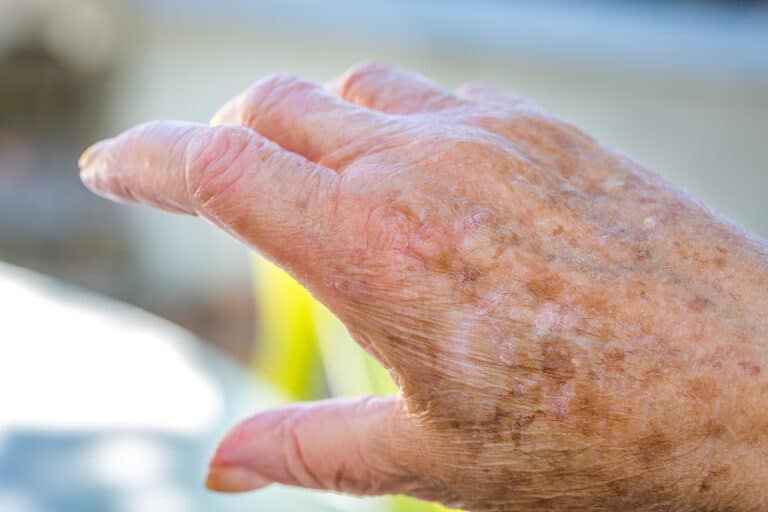Over the years, seniors may have experienced their fair share of sunburns and sun exposure. A surprising side effect of that is that seniors may develop skin cancer. Many types of skin cancer go unnoticed, however, so it’s important to pay attention to skin changes that can indicate a problem. Personal care services at medical adult day care centers offer seniors assistance with tasks like changing clothes and bathing, while also helping seniors notice changes in their skin.
Types of Skin Cancer
Melanoma is the most dangerous form of skin cancer. It can occur anywhere on the body, even areas that aren’t exposed to the sun. Asymmetrical moles are often the first indicator of melanoma.
It’s far more common for seniors to develop either basal cell carcinoma or squamous cell carcinoma. Both are highly treatable with surgical interventions or topical medications and may not lead to serious health issues once treated.
Aging and Skin Cancer
Unfortunately, aging and skin cancer are very common. Aging adults have had more years of life and, therefore, more years of sun exposure, for one thing. Then there are the changes that skin goes through as it ages, which can lead to skin cancer forming more easily.
Growing older isn’t a guarantee of developing skin cancer, but seniors need to be aware of any new moles or other marks on their skin.
Staying Alert About Skin Changes
The best way to detect skin changes that could indicate skin cancer is to examine the skin regularly. Personal care services at medical adult day care centers offer a chance for seniors to have help noticing differences in their skin texture and any new moles or bumps. Noticing that something isn’t quite right is the first step for seniors in getting a diagnosis and then treatment for their skin issues.
Life Expectancy and Treatments
Life expectancy for seniors with skin cancer varies depending on the type of skin cancer and how long it has gone undetected. The most common treatment is surgical removal of the cancerous lesions, but there are also topical medications and radiation that can help.
Some types of skin cancer require a combination of treatments to take care of all of the cancer cells.
Care After Treatments
Taking care of skin and surgical sites after skin cancer treatments can also vary, depending on the type of cancer and the surgery itself. Often, seniors need to pay closer attention to their skin after treatments because they’re more likely to have a recurrence of skin cancer.
Personal care providers at medical adult day care centers can help aging adults stay aware of what’s going on with their skin so that they can get additional treatment if necessary.
Most skin cancers are not life-threatening, but as with any health issue, it’s always good to address the problem as quickly as possible. Personal care services at medical adult day care centers allow seniors to feel more comfortable and clean. Still, they also help seniors notice more quickly when there are changes in skin health that indicate trouble.
If you or an aging loved one is considering the assistance of Medical Adult Day Care in Catonsville, MD, please contact the caring staff at Renaissance Adult Medical Center. Call (443) 501-9500
Renaissance Adult Medical Center Provides Senior Socialization in a Medical Adult Day Care Center in Baltimore City, Baltimore County (Pikesville, Towson, Owings Mills, Catonsville, Reisterstown, Dundalk, Essex), Howard County (Columbia, Ellicott City, Elkridge, Laurel), and in many other counties and cities of Maryland.
- Seniors, Skin Cancer, and Medical Adult Day Care - April 22, 2025
- Getting Help with Diabetes from Nursing Care at Adult Day Health Care - April 10, 2025
- What Should Seniors Do to Focus on a Balanced Diet? - March 24, 2025

